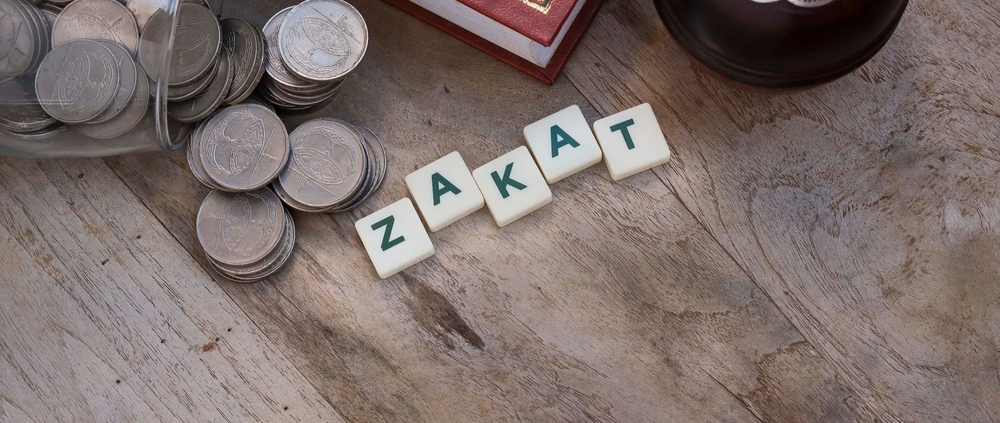Is It Permissible to Accept Zakat Funds for Tuition Reductions at Islamic Schools?
Hanafi Fiqh
Answered by Shaykh Yusuf Weltch
Question
One Islamic school in Canada is offering a discount on fees ( as it’s already very high) compared to other Islamic schools. They apply income test criteria based on family income, say if less than $100K with three kids going to school, then you can
Another form they ask to sign has many other points, but the one concerning me the most is: “ I understand and accept, if I am approved, that all or part of the assistance grant is coming from Zakat money.”
If I am not eligible to accept zakat money, can I take the benefit in the above scenario with a reduced admission fee? As per school management, they are against it’s not your concern, and it’s the school’s discretion to distribute funds.
Answer
In the Name of Allah, the Most Merciful and Compassionate.
Short Answer
According to a minority opinion, taking the funds for your Islamic school education is permissible, even if you are otherwise ineligible to accept Zakat.
Long Answer
Allah Most High says, “Alms-tax is only for the poor and the needy, for those employed to administer it, for those whose hearts are attracted (to the faith), for (freeing) slaves, for those in debt, for Allah’s cause, and for (needy) travellers. (This is) an obligation from Allah. And Allah is All-Knowing, All-Wise.” [Quran, 9:60]
In the above verse, Allah Most High mentions eight types of people who are eligible for Zakat. They are as follows:
- The poor;
- The needy;
- Those employed by the Muslim leader to administer/collect Zakat;
- Those whose hearts are attracted to the faith (this has been later abrogated, as it was contextually only needed in the early days of Islam);
- To free slaves;
- To pay back debts;
- For the sake of Allah;
- For travelers, cut off from their wealth. [Ibn ‘Abidin, Radd al-Muhtar]
For the Sake of Allah
The seventh type of recipient of Zakat is the point of contention in this issue. The term “in the way of Allah” (literal translation; stated above “for the sake of Allah”) was interpreted by the scholars of Islam in various ways. [Ibid.]
The majority of the Hanafi school took this to mean those who were sent out to fight in Islamically sanctioned battles by the Muslim authority and were cut off from their wealth. Others including to this understanding, those who left their homes to perform the Hajj and were likewise cut off from their wealth. [Ibid.]
Yet, other scholars within the Hanafi school expanded the meaning of “in the way of Allah” to include any act of worship, especially seeking knowledge. However, they maintained the condition that they be legally poor. [Ibid.]
It is due to their seeking of knowledge they are unable to earn, and had they been obliged to earn, they would not be able to seek knowledge – thus, Zakat is afforded to them to free them up for such worship. [Ibid.]
Summary
If you meet the criteria for poverty in Islamic law, such that your wealth after subtracting your financial necessities and debts owed from your cumulative wealth that one lunar year has passed over, you may take the Zakat for Islamic studies. Otherwise, you should request to opt-out and pay the tuition with your own money.
Hope this helps
Allah knows best
[Shaykh] Yusuf Weltch
Checked and Approved by Shaykh Faraz Rabbani
Shaykh Yusuf Weltch teaches Arabic, Islamic law, and spirituality. After accepting Islam in 2008, he completed four years at the Darul Uloom seminary in New York, where he studied Arabic and the traditional sciences.
He then traveled to Tarim, Yemen, where he studied for three years in Dar al-Mustafa under some of the most outstanding scholars of our time, including Habib Umar Bin Hafiz, Habib Kadhim al-Saqqaf, and Shaykh Umar al-Khatib.
In Tarim, Shaykh Yusuf completed the memorization of the Quran and studied beliefs, legal methodology, hadith methodology, Quranic exegesis, Islamic history, and several texts on spirituality. He joined the SeekersGuidance faculty in the summer of 2019.
